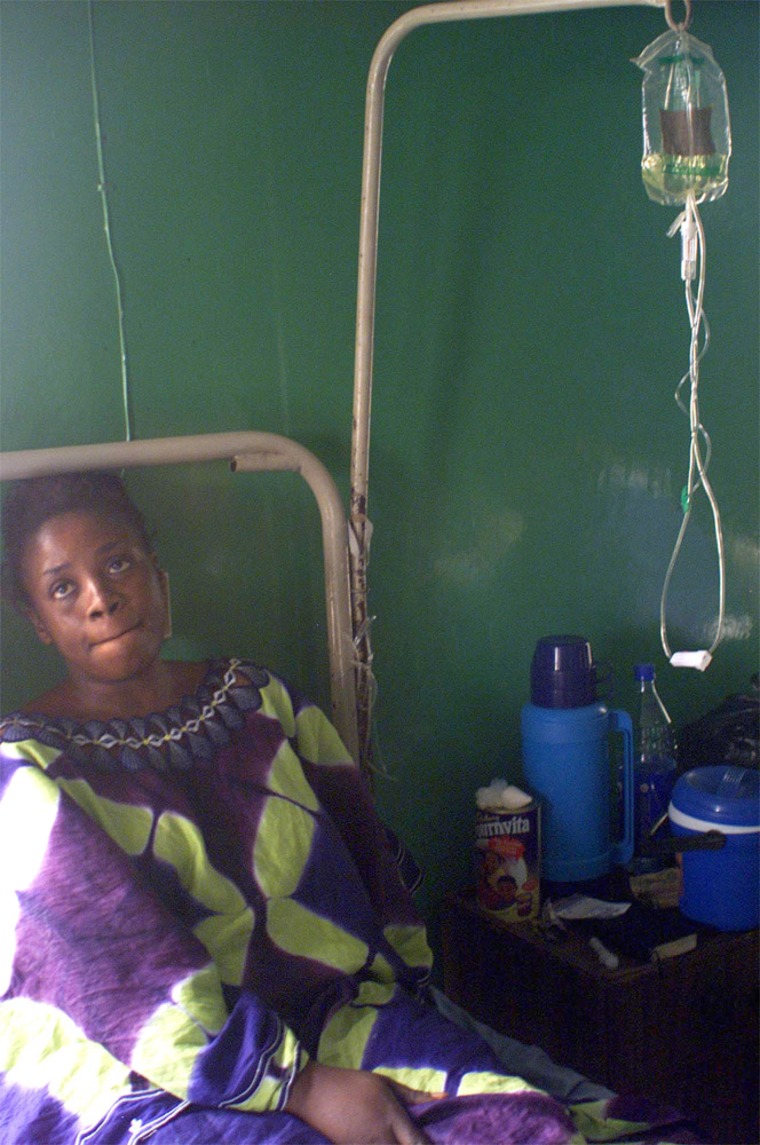As negotiators on a global warming pact ran into new obstacles Thursday, a U.N. agency estimated that 150,000 deaths in 2000 were tied to warmer temperatures and that the toll could double in 30 years if current trends are not reversed.
The World Health Organization warning on warming-related deaths stood in stark contrast to statements by the most senior U.S. lawmaker on environmental policy, who was attending the negotiations over the Kyoto climate change pact.
“Kyoto and its policies are inconsistent with freedom, prosperity and environmental policy progress,” said Sen. James Inhofe, R-Okla., the chairman of the U.S. Senate Committee on Environment and Public Works. “I’m becoming more and more convinced, as time goes by and we look at the research, that global warming is the greatest hoax ever perpetrated on the American people and the world.”
Health warning
Inhofe’s views are contrary to those of most climate scientists. In reports to the U.N. and in scientific papers, these scientists believe that while the exact impact humans have is debatable it is in any case significant and largely due to the burning of fossil fuels.
The World Health Organization added its voice to the debate, issuing a report Thursday that estimates global warming led to 150,000 premature deaths in 2000.
“We see an approximate doubling in deaths and in the burden in healthy life years lost” by 2030, said WHO scientist Diarmid Campbell-Lendrum.
He acknowledged those numbers were minuscule compared to the 56 million people who die each year, and noted that 10 times more people die each year from tobacco-linked illness.
But, he added, “that doesn’t make it more acceptable and the fact is it’s likely to get worse. One of the points about climate change is that people who are affected by it don’t have the choice to stop smoking.”
The agency also estimated warmer temperatures were to blame for 2.4 percent of cases of diarrhea worldwide, and two percent of all cases of malaria.
Gradual warming in many cases can lead to increased rainfall, creating more places for stagnant water to build up. “Still water provides additional breeding grounds for mosquitoes and other vectors which transmit diseases such as malaria and dengue fever,” the agency said.
Not all scientists were convinced by the study, especially by the link it draws between warming and malaria.
“It is naive to predict the effects of ’global warming’ on malaria on the mere basis of temperature,” Paul Reiter, a professor at Paris’s Pasteur Institute, said in a statement. “Why don’t we devote our resources to tackling these diseases directly, instead of spending billions in vain attempts to change the weather?”
But Kerstin Leitner, a WHO assistant director, said in a statement accompanying the report that “there is growing evidence that changes in the global climate will have profound effects on the health and well-being of citizens in countries throughout the world. “We must better understand the potential health effects particularly for those who are most vulnerable, so that we can better manage the risks,” Leitner added.
OPEC obstacle
In Milan, where Kyoto negotiators are trying to work out details should the treaty ever go into effect, OPEC nations on Thursday made demands that complicated talks further.
Saudi Arabia and other oil producing countries argued that a planned fund for developing countries should also compensate oil exporters for losses if consumers shift away from fossil fuels towards clean energy like wind or solar power.
Third world delegates disagreed. “OPEC doesn’t have problems when you compare with the threat that rising sea levels will wash away some Pacific island states,” one delegate from a Third World nation said. “Even most poor states disagree with them.”
The Special Climate Change Fund is meant to help poor nations adapt to the impact of global warming, ranging from more frequent droughts, floods and typhoons. A group of nations led by the European Union has pledged $410 million a year as of 2005.
Details of the fund are the final main negotiating point at the 180-nation conference that wraps up Friday.
After committees failed to agree on the fund, they asked the president of the talks, Hungarian Environment Minister Miklos Persanyi, to try to break the deadlock with ministers. If that doesn’t happen, the issue would be postponed for a year.
Oil producers fear they could lose billions of dollars under Kyoto, which aims to reduce emissions of gases like carbon dioxide released from burning fossil fuels in cars and power plants.
Eyes on Russia
Environmental groups, meanwhile, hosted a muted birthday party for the Kyoto protocol on Thursday, six years to the day after it was agreed in the Japanese city of that name. Kyoto has been weakened by a U.S. pullout and Russia is undecided on whether to ratify.
The Bush administration sent a delegation to Milan to observe the talks. Environmentalists feared U.S. officials would try to undermine efforts to launch the pact.
Without Russia, Kyoto will collapse. The protocol needs ratifications by nations accounting for 55 percent of emissions of carbon dioxide to enter into force.
So far it has reached 44 percent and needs Russia’s 17 percent after the pullout of a U.S. stake of 36 percent.
Russia says Kyoto might choke its economic growth even though the collapse of its smokestack Soviet-era industries leaves it with spare emissions quotas to trade abroad.
Moscow may also want pledges of investments or membership of the World Trade Organization in exchange for backing the pact.
The Associated Press and Reuters contributed to this report.
